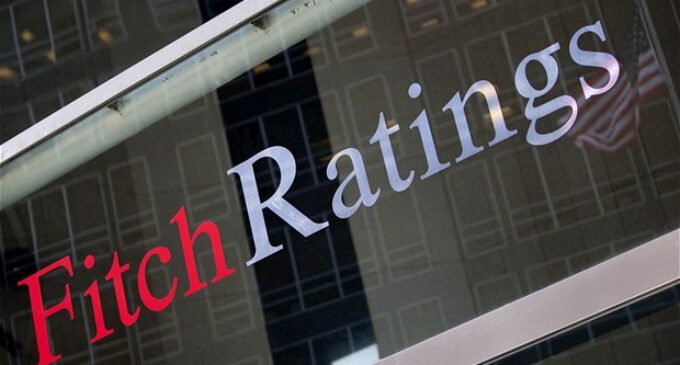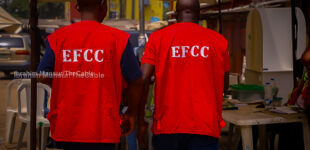Fitch ratings: FG’s sustained borrowings from CBN to fund budget deficit may raise risks

Fitch Ratings, a credit rating agency, says repeated recourse by the federal government (FG) to its ways and means facility (WMF) with the Central Bank of Nigeria (CBN) highlights weaknesses in public finance management.
Fitch, in its latest report ‘Nigeria’s Deficit Monetisation may raise Macro-Stability Risks’ noted that the sustained use of direct monetary financing could raise risks to macroeconomic stability — given the current weak institutional safeguards, but expects FG to reduce its use of the facility in 2021.
The federal government borrowed N2.8 trillion from the CBN through a provision in the CBN Act called “Ways and Means” to help fund its budget deficit of about N6.1 trillion in 2020.
However, provisions in the act cap monetary financing of fiscal deficits at 5 per cent of the prior year’s revenues, but FG’s new borrowing from the CBN has repeatedly exceeded that limit in recent years, and reached around 80 per cent of the FG’s 2019 revenues in 2020.
The CBN guidelines also require borrowing under the WMF to be repaid in the year in which it was granted.
Ahmed Zainab, minister of finance, budget and national planning at the 2021 budget presentation in Abuja, said there are plans between her ministry and CBN to convert loans from the apex bank into tradeable securities.
“We are working with the CBN to regularise the previous borrowing that have been made to turn them into formal borrowing and by the Nigerian economy and to this extent, the CBN and I (fiscal authorities) need to agree on the rates and the tenures and the cost of the borrowing,” she said.
“So we would be formally doing that in early 2021 on the previous borrowing that has been made, and also projected borrowings in 2021. So we will design special instruments that limits what is done in terms of domestic borrowing from the CBN.”
Fitch noted that monetary financing of the fiscal deficit raises challenges to monetary policy implementation, as tight management of domestic liquidity is a key tool under the CBN’s policy of prioritising the stability of the naira, noting that it could also complicate official efforts to bring inflation back under control.
The report attributed Nigeria’s soaring inflation rate at 15.75 per cent in December — the highest level since November 2017, as being driven primarily by cost-push factors, including restrictions on access to foreign exchange for imports, the impact of border closures on trade, hikes in minimum wages and VAT, and the removal of the fuel subsidy — rather than overly loose monetary policy.














There are no comments at the moment, do you want to add one?
Write a comment